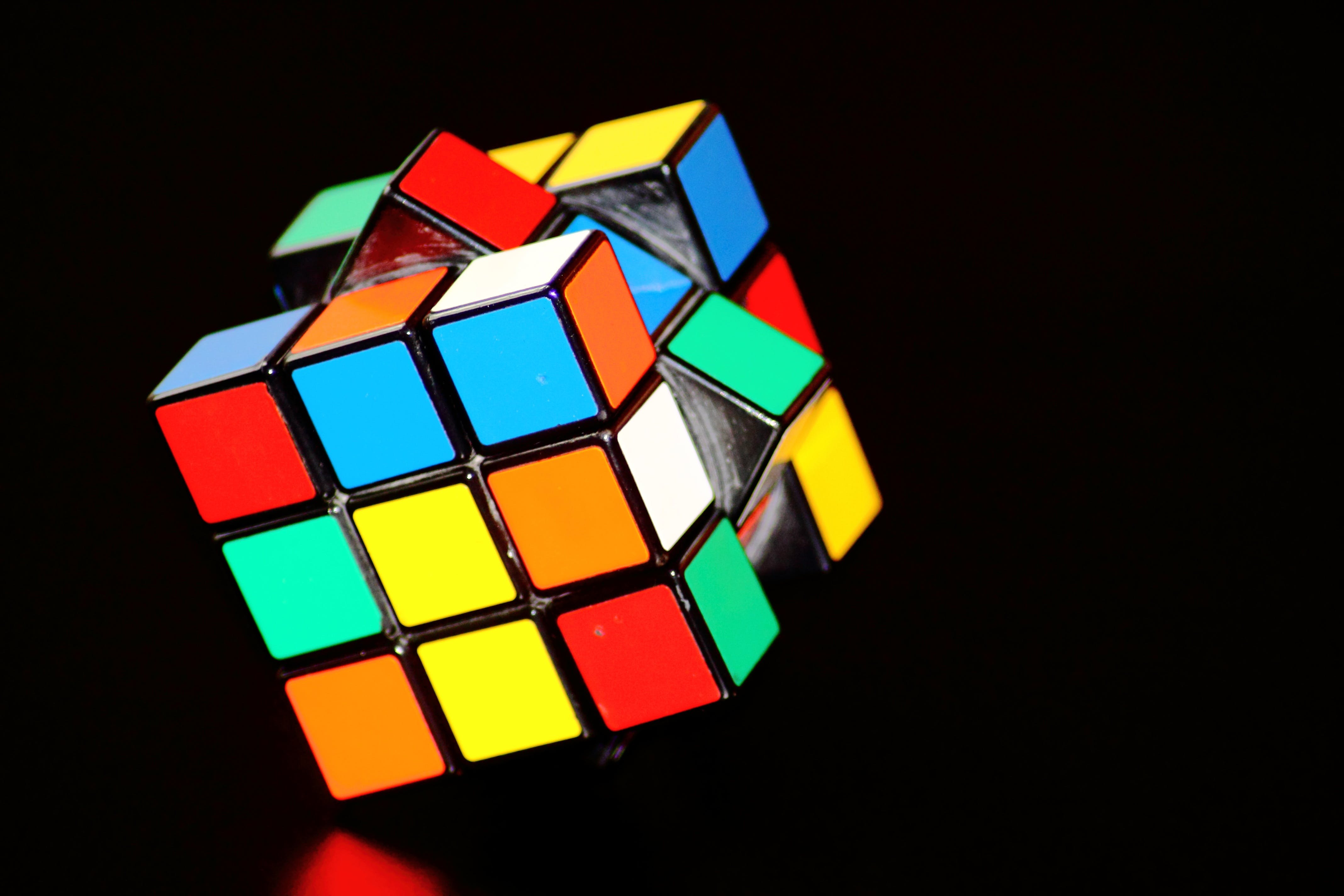I.Q. is Not Everything
The Seven Contestants
On a field, a referee stands in front of seven competitors. One contestant, towering an unimpressive height of a typical tree stump, has a silver-ish black beak and sharp black talons. The next contestant has front-facing eyes, ears, a long prehensile tail, and white teeth. After him is one that is black on the back and white on the front with two flippers. The fourth contestant is easily the largest and has a long nose. Trapped in a bowl, the fifth contestant is small, orange, and has gills. The sixth has flippers but no legs. Last stands a contestant with four legs like the fourth.
After patiently waiting some time, the seven receive the instructions from the referee. “For a fair selection everyone has to take the same exam: please climb that tree.” Upon hearing the objective, all of them look back to confirm the existence of the tall brown wood with bushy green leaves. Barring the second contestant, all of them display discontented faces. Climb a tree? What gives? What exactly is the goal testing? The mere ability to climb a tree? What does such an endeavor determine?
“Climbing a tree determines how intelligent one is.”
“…”
When six of the seven contestants hear this, they are perplexed. What does climbing a tree have to do with intelligence?
“Trees exist all around us. They provide us with the oxygen we breathe. If trees didn’t exist, none of us would be here?”
“…”
Time to Climb
As the confusion among the six grows, they glance at one another to ascertain the atrocious validity of the referee’s statements. Perhaps none of them are intelligent. Maybe, in spite of existing today, none of their ancestors were suited for survival.
Despite the confusion, the referee continues on with giving senseless commands. “On your marks. Get set. Go!” The seven of them move toward the tree. Only the first and second competitors make it to the top of the tree. The seven receive their marks. The first contestant receives a B; the second, an A+; the third, fourth, sixth, and seventh, Ds; the fifth receives an F. What gives? Both the first and second test takers made it to the top of the tree, yet the former received a B and the latter an A+. Remember that the task was to climb the tree, not fly to the tree. And what of it? The flier reached the top of the tree before the climber. Ought he to receive an A+ as well?
Only One Way to Perform?
“No,” says an eavesdropping anal-retentive K-12 math teacher. “Even if a student consistently answers questions correctly while showing work, that student needs to solve the problems the way I teach how.” A student who identifies another effective, if not more efficient, way of solving a problem is a menace in the eyes of many teachers. How come? Because rules are rules.
“It’s MY way or the highway!”
“Simmer down child! I’m the ADULT! Know your place!”
“Sit DOWN and be quiet!”
“The bell doesn’t dismiss you. I dismiss you!”
After the test, the former contestants decide to protest the referee by trampling on him. As they attack the referee, the latter still fails to see the error in his ways. He sticks to his guns, stubbornly refusing to admit his wrongdoing. Half an hour later, the man is immobilized. “Why is this happening? I did nothing wrong. They should know their place!” The former test takers leave. They move on with their lives.
The Traditional Measurement of Intelligence
While reading this, a few memories may have popped up in your head like a balloon. During your years trapped in the public school system, you’ve surely encountered teachers that think like the referee. Such teachers think completing assignments only their way is acceptable. Passing tests is all that matters. Grades are everything. I.Q. is everything.
With the preceding sentence in mind, what, exactly, is I.Q.? What is its significance? I.Q. stands for intelligence quotient. Simply put, someone’s intelligence quotient is a score that represents said person’s ability to recognize patterns and learn. Over the course of thousands of years, this ability has enabled us humans to claim the crown as the rulers of this world. Since the dawn of humanity, Homo sapiens were never the fastest nor the strongest animals in the wild. Instead, we were, and still are, the smartest animals to exist as of yet. Due to our superior cognitive horsepower, we can start fires, grow crops, build towns and cities, and so much more.
No wonder we place such a high value on the ability to learn and notice cause-and-effect relationships. But is I.Q. everything? No, it’s not, nor will it ever be. A person’s I.Q. tells you only their ability to notice patterns in abstract. It doesn’t tell you how effective they are in tackling life in relation to their goals. I’m sure you know plenty of intelligent people who are lazy. Albert Einstein couldn’t even tie his shoes, despite being one of the most intelligent humans to have ever existed. There’s more to a person than having a high intelligence quotient.
Nine Kinds of Intelligence
What system could possibly be devised to assess a person more holistically? When will such a system be revealed? It won’t be revealed anytime in the future, since it already exists. The system is called “The Nine Types of Intelligence.” It is a theory proposed by a developmental psychologist named Howard Garner. Garner believes that the traditional measure of intelligence is much too narrow. Such a belief is justified by the fact that many conventionally smart people still have weaknesses like everyone else. We all excel in different areas.
Now that you know, or have been reminded of, this theory, you are likely wondering what the nine intelligences are. They are as follows: logical-mathematical, linguistic, interpersonal, intrapersonal, musical, visual-spatial, bodily-kinesthetic, naturalistic, and existential. Since its conception, the traditional I.Q. test has accounted for only two of these – logical-mathematical and linguistic. The former signifies one’s handle of numbers and sequential thinking; the latter, words and communication.
Interpersonal Intelligence
With the most societally recognized types of intelligence out of the way, we are left with seven types of intelligence. What does each signify? Starting with interpersonal intelligence, we come across what is essentially the ability to understand and deal with other human beings on a personal level. A person who has an excellent degree of said intelligence can sense and appropriately respond to the emotions of others. They are attuned to the complex dynamics of interpersonal relationships. Who’s friends with who? Which people actually like each other, and which people are faking? Why did this person react this way? How can I most effectively manage the people around me? Where do I fit within the overlapping hierarchies of interpersonal bonds?
Intrapersonal Intelligence
Next, we shall tackle intra-personal intelligence (not to be confused with inter-personal intelligence). Intrapersonal intelligence is the ability to understand oneself. “Know thyself,” so to speak. A high level of intrapersonal intelligence allows one to accurately assess him- or herself through introspection. What events caused me to have this belief? Why do I think this way? How did my childhood affect me psychologically? What do I want out of life? How do I become self-actualized? On the other hand, a low level of intrapersonal intelligence blinds one to the depths of his soul. Such a person is, for a human, barely sentient, drifting through life half asleep on autopilot.
Visual-spatial Intelligence
Visual-spatial intelligence is the ability to visualize and conceptualize objects and images. A person who is gifted in terms of this intelligence operates splendidly with respect to 3D space. Imagine being able to build a Tesla or BMW from scratch with no instruction manual; no words, no images. With an average level of visual-spatial intelligence, the vast majority of people would fail such a task. On the contrary, the gifted person could accomplish the task. The gifted person could also navigate his way out of a jungle without a map and hardly ever uses a GPS when driving.
Bodily-kinesthetic Intelligence
Bodily-kinesthetic intelligence signifies the aptitude of maneuvering the body well. Someone with a marked degree of this intelligence is in touch with their body. Such a person is athletic and moves gracefully. Said person can also learn physical techniques on the fly with proper form; accurately throwing a football, nimbly manipulating a soccer ball, correctly executing an Olympic deadlift. He has an innate “feel” for his body superior to that of the average Joe. He learns by doing. When playing sports, he can “sense” the best next move to make.
Existential Intelligence
Moving from concrete to abstract, we shall direct our attention to existential intelligence. This is the capacity to tackle deep philosophical questions, along with the nature of existence itself. This can be said to be the most profound type of intelligence. Not many people have an outstanding handle of this type of intelligence. Why do we exist? How does consciousness come into being? What determines self-awareness? Does fate exist? Do we really have free will? Is there an afterlife? Are humans born good or evil?
Musical and Naturalistic Intelligence
Musical intelligence is one’s inborn attunement to harmony, rhythm, and beat. Naturalistic intelligence is one’s survival instinct. While hiking, do you walk up to a bear cub to pet it? Or do you avoid it? I don’t believe that there is much more to say about these types, so I left them for last.
I.Q. is Not Everything
As you know, the level of each of these intelligences displayed differs from person to person. Someone can be a magnificent poetry writer but flounder in any physical endeavor that requires delicate skill. A person can be the most talented athlete but fail to fix anything around a house. Someone who is a natural as a mechanic may not do so well with interpersonal dynamics. Exceptionally rare is a person who excels in all these intelligences.
Similar to how I.Q. is influenced mostly by genes, one’s aptitude for each of these intelligences is also inborn. This does not mean that you can’t improve in any of them whatsoever. Rather, it means that you have a natural affinity for a few of them. Perhaps you had difficulty learning in a traditional school classroom. If so, you probably have a low I.Q. That’s perfectly fine. As said above, I.Q. accounts for only two of the nine intelligences mentioned in this post. I.Q. is not everything.
“Everybody is a genius. But if you judge a fish by its ability to climb a tree, it will live its whole life believing that it is stupid.” Regardless of who the first person to come up with the quote was, the saying is true. The raven, monkey, penguin, elephant, fish, seal, and dog all know this. Only the first two can reach the top of a tree. People are no different. It’s not reasonable to assess someone for something they are not designed to do.

